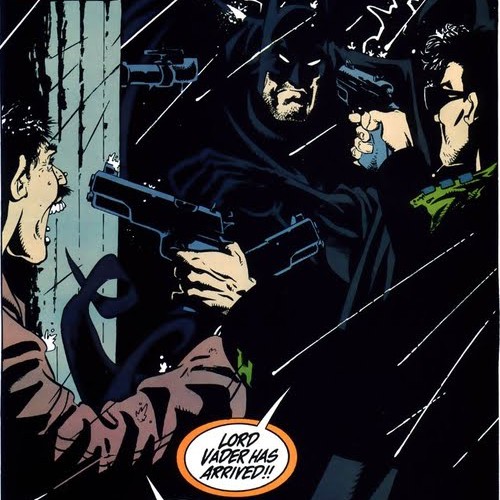I began reading a 11-volume series of books on world history. It’s called ‘The Story of Civilization‘, by Will and Ariel Durant. Much like the most of my book shopping nowadays – ahem, with the exception of signed Subterranean Press books – I picked up 9 out of the 11 volumes in a Long Beach used bookstore, for the grand total of 9 dollars and 90 cents (10% sales tax). I had to get my car from the parking lot, park illegally outside the bookstore and wave at the sales guy to come out with some of the books, because they are heavy, bulky 1000-page volumes.
So why did I begin this year with this apparent ordeal of going through 9000+ pages of history? Therein lies a short tale.
Last year, one of my friends was appearing for the GRE. Her scores in the quantitative section were off the charts. In the verbal section, she scored really well in the vocabulary questions, but her reading comprehension section left much to be desired. Emergency help was sought, and I sat down and tried to help her reason through some of the essays in the test material. And then I realized that the problem was not just about comprehension, it was also about context.
You see, my friend – for no fault of hers – could not get a grasp of the subject matter that appeared in those essays. Most of them were literary criticism or snippets from world history. Words like “Byzantine”, “Renaissance” and “Holocaust” stumped her, and cost her precious minutes as she read and reread those passages, trying to glean whatever meaning she could.
So I ended up giving her a primer in world history, in one hour. It was a fun, challenging exercise – it had been a long time since I had talked about topics like the Holy Roman Empire, the Crusades, the Silk Route, or even World War II. In the middle of that hour-long conversation, I realized that my dates were all over the place – suddenly, I could no longer place Indian history in relation with the birth of Islam (was it Harsha ruling Central India at the time, or was it the Kushans? Or both?), or even that of the Renaissance vis-a-vis the Reformation. Don’t get me wrong, I am not talking about precise years here, I was getting centuries wrong, even. That detracted a bit from my narrative, as I told her to take my timelines with a grain of salt, but it was a fruitful hour for the both of us.
And this is the primary intent of this 9000-page exercise. To sift through my decade-old knowledge and rekindle some old flames, and learn something new at the same time. Will Durant writes in the kind of semi-formal tone that is brisk and yet dense, highly readable without being the dry academic tone that turns me off. At the same time, he is not a pop historian; his stories are rarely embellished to woo ADD blurb-friendly readers. I began book 3 (‘Age of Faith: Medieval Civilization from Constantinople to Dante’) early this week and I am only on page 162. The Western Roman Empire, having embraced and absorbed Christianity in every walk of life has just declined, fallen to attacks from Visigoths, Ostrogoths, Huns and Vandals; as has the Persian Empire – after the flurry of great Sasanian warrior-emperors Shapur and Khosru (I and II, for both); the Byzantine emperor Justinian has built the Hagia Sophia with an expenditure of 134 million dollars (and this is by early 20th century exchange rates); and we are now among the Bedouin tribes of Arabia, referred to as “Easterners”, from the Arabic sharqiyun, which was corrupted by the Greeks into the word ‘Sarkenoi’, anglicised to ‘Saracens’. Durant takes his time to set up the mileu, talking about the pre-Islamic Arab’s love for poetry, for example:
Every year, at the Ukaz fair, the greatest of these contests was held; almost daily for a month the clans competed through their poets; there were no judges but the eagerly or scornfully listening multitudes; the winning poems were written down in brilliantly illuminated characters, were therefore called the Golden Songs, and were preserved like heirlooms in the treasuries of princes and kings. The Arabs called them also Muallaqat, or Suspended, because legend said that the prize poems, inscribed upon Egyptian silk in letters of gold, were hung on the walls of the Kaaba in Mecca.
I had no idea that the word Kaaba comes from the same root as “cube”, it means a square structure. Nuggets like this abound throughout, and that makes for slow going, trying to take in this continuous flow of information. It’s fun though, and so far, seems very very worthwhile.
What about my friend, then? She appeared for the GRE, did really well, and is now waiting for responses from the University applications she sent in. Our discussions about medieval history has sparked in her the interest to go visit Venice and Florence this year. I am trying to get her husband to buy me a free ticket, so I can be their tour guide and honorary baby-sitter. I don’t think he is sold on that idea.
Note: apparently Durant’s earlier work The Story of Philosophy is available for 99 cents for the Kindle. Unfortunately, the 11-volume set of Story of Civilization is priced at 99$.
[amazon asin=B00HT53KV0&template=iframe image] [amazon asin=B00IAZ5YJY&template=iframe image]